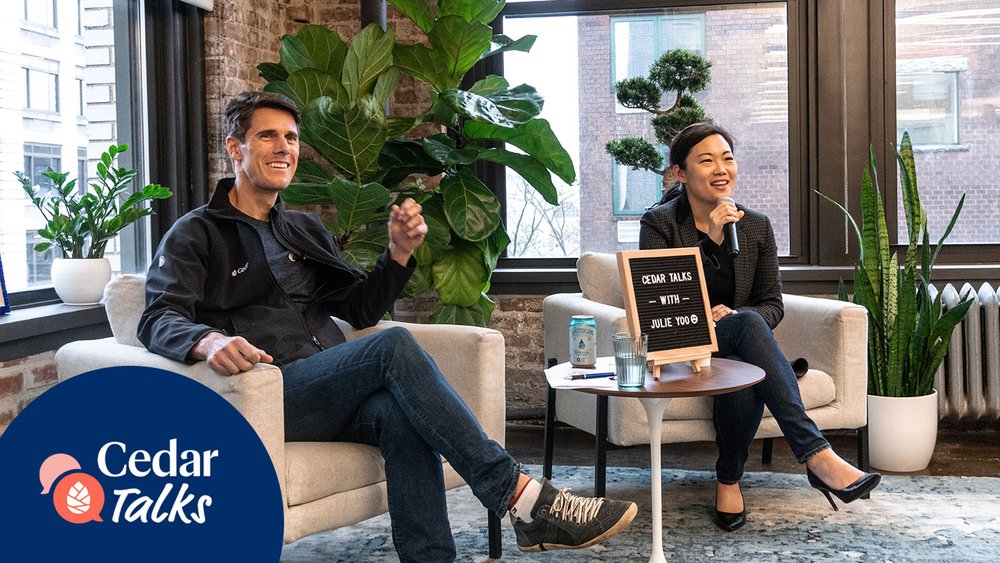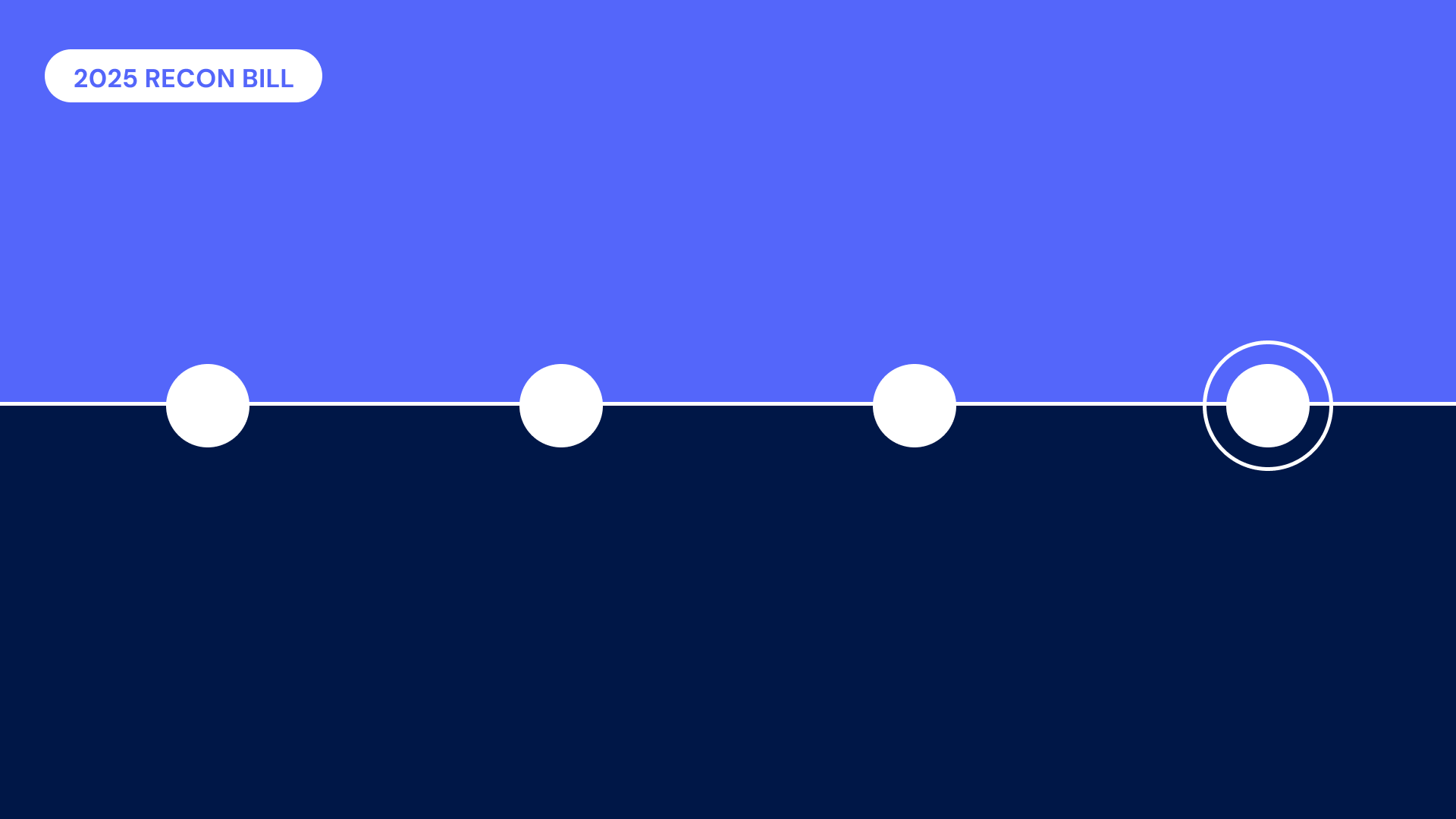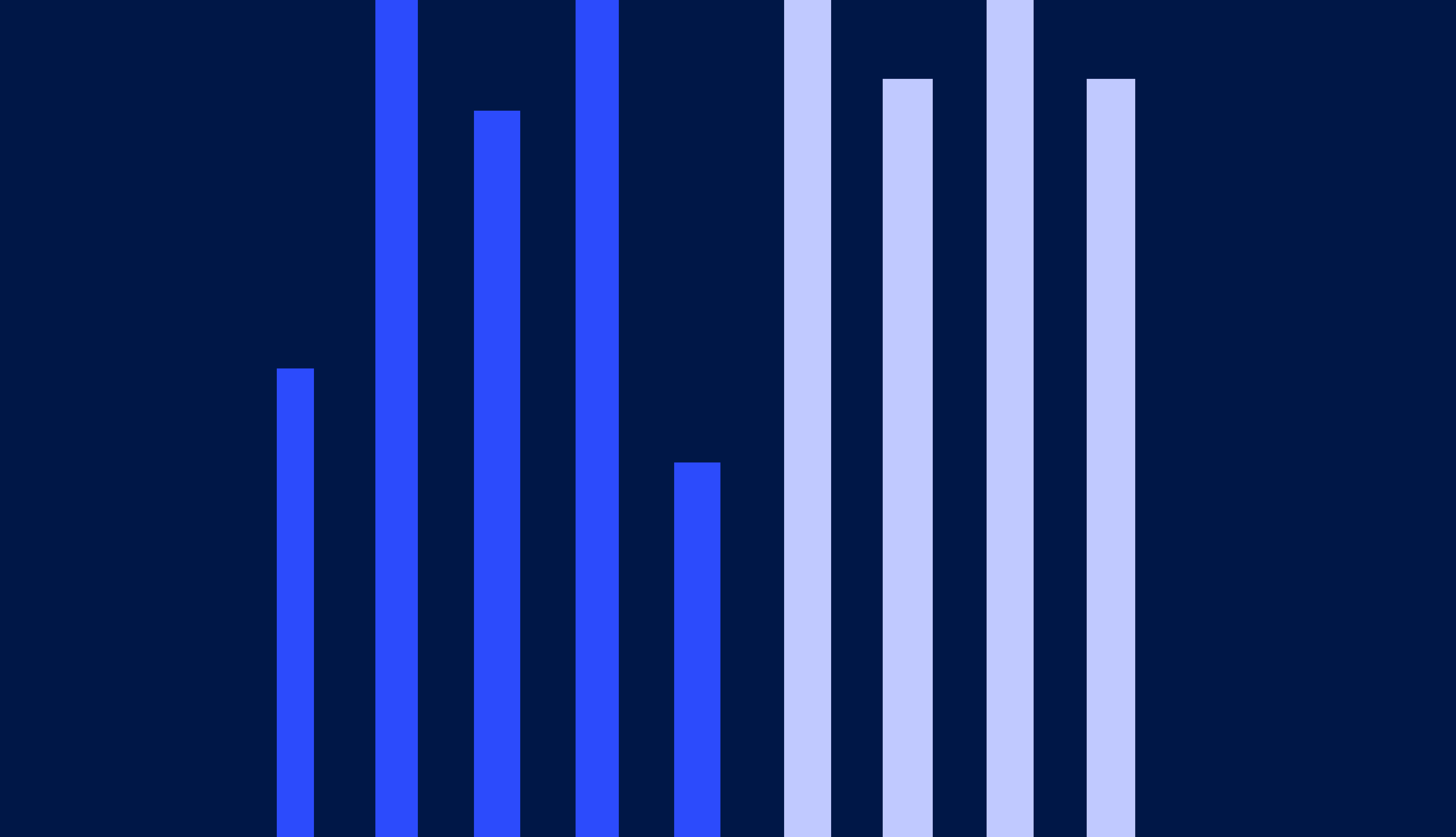Julie Yoo, whose career has taken her from healthcare technology entrepreneur to venture capitalist, recently stopped by Cedar to share hard-won lessons about launching, managing and growing health-tech startups.
Throughout her career, Yoo has been at the vanguard of changes in healthcare and the digital health movement. Early on, she served as Vice President of Product at Generation Health, a company that helped promote clinical adoption of genetic testing.
Then, in 2010, “before there was anything close to a robust digital health industry,” she co-founded and grew the digital healthcare company Kyruus.
Yoo is now a General Partner at venture capital firm Andreessen Horowitz, where she invests in healthcare technology companies.
From her current vantage point as an investor and with her extensive experience as an entrepreneur, Yoo offered insights into every stage of creating a successful health-tech business, from identifying market opportunities to choosing the right customers and scaling.
Surfacing opportunities in health-tech
“Having been in the healthcare arena for the last 15 years, I can say that things have fundamentally changed [for the better] during that time,” said Yoo. In particular, she sees three big reasons why now is a great time to launch a health-tech company (or invest in one).
First, providers have finished the hard work of implementing electronic health record (EHR) systems and now need to add best-in-class solutions to fill gaps atop of their EHR systems.
Second, healthcare providers need digital solutions to help them navigate the change from the fee-for-service payment model to value-based care.
Third, there is newfound opportunity to create direct-to-consumer business models. “There are wedges in the market where you can absolutely go to market with a direct-to-consumer strategy, as long as you have a longer-term strategy to integrate with the broader healthcare value chain to get to true scale,” Yoo said.
Yoo also suggested that entrepreneurs can find market opportunities in health-tech by tracking regulatory changes. “I truly believe that the biggest categories of companies in healthcare have been born out of some major regulatory, or policy, change. There are many of these changes happening right now that are favorable to businesses like Cedar,” she explained.
When evaluating potential opportunities, a key factor to assess, Yoo suggested, is whether the healthcare industry is ready to absorb a particular technology or solution. For example, Generation Health—and its network of genetic testing labs—formed right when other companies, such as CVS Caremark, were interested in using genetic testing to guide prescription drug choices.
Special considerations for a change-resistant industry
Yoo also made clear that those operating in healthcare technology will find a few differences compared to other sectors. Mainly, the fact that the stakes are higher in healthcare than in other industries. Patient outcomes often depend on a software product working correctly, so health-tech companies need high confidence in a software product before releasing it. Beyond that, and perhaps because of it, healthcare is a mature industry that can generally be resistant to new approaches.
Another consideration when operating in healthcare is that products may have multiple stakeholders. In the case of Kyruus’s patient-provider matching platform, the company had to weigh the overall enterprise’s interests against the potentially conflicting interests of individual providers and patients.
“When push came to shove, we optimized for the health system customer first, above individual physicians and their individual preferences,” Yoo said.
The hard thing about scaling a startup
Yoo also discussed a topic of particular interest to the Cedar team: how to effectively scale a startup company.
The biggest struggle Kyruus experienced as growth accelerated was optimizing communication and organizational processes, according to Yoo. To help address these challenges at Kyruus, she relied on advice from Ben Horowitz’s book The Hard Thing About Hard Things: Building a Business When There Are No Easy Answers: “The book really tells it like it is, and that gave us a lot of comfort. It also provided practical and tactical frameworks that we used, such as the notion of communication architecture.”
For example, Yoo noted that “you sometimes have to deliver a message five times for it” to become internalized by members of your team, and then established in the culture of a company.
Given how challenging it is to scale a startup, at Andreessen Horowitz, co-founded by Ben Horowitz himself, a specialized team helps funded companies manage their growth.
Yoo elaborated, “We actually have a dedicated group that shares best practices on organization-building. Because we have seen world-class tech companies go from zero to 50 billion in value over the course of several years, we know that it takes a very specific science to get that kind of growth right. To be able to bring that expertise and insight to our entire portfolio is something special.”
Interested in joining us for future Cedar Talks? Sign up to be added to our mailing list.
Cedar Talks is a thought leadership series focused on connecting the Cedar team and broader community with tech entrepreneurs who are dedicated to solving hard problems with great design, thoughtful engineering and industry expertise. Recent Cedar Talks have included Oscar CEO Mario Schlosser, tech investor Ashton Kutcher, and AppNexus Founder Brian O’Kelley.



